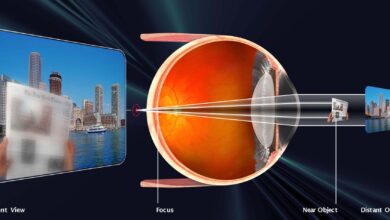
Myth or Fact: Is ABA Therapy Only for Autism?
The idea of applied behavior analysis therapy started back in the 1960s, even if it looked very different back then.
Nowadays, ABA therapists use modern methods based on those decades of research to help their patients. Many people think that all of those patients have autism. Is ABA therapy only for autism?
We’re here to talk about it. Read on to learn about who ABA therapy can help.
Table of Contents
What Is ABA Therapy?
ABA therapy is short for applied behavior analysis therapy. It’s a form of therapy that’s popular amongst parents of children with autism.
ABA therapy uses positive reinforcement to help patients understand cause and effect (among other things). There are also consequences for “negative” behavior. The consequences for negative behavior aim to imitate natural consequences rather than punishments.
ABA therapy is good for helping patients:
- Develop social skills
- Improve their academics
- Stop maladaptive coping mechanisms
- Develop problem-solving skills
- Understand natural consequences
- Quit bad habits
This is an incomplete list. ABA therapy has a wide variety of benefits and a therapist will work together with the patient (or their guardian) to develop a treatment plan that’s tailored to their specific needs.
Is ABA Therapy Only for Autism? Other Conditions Treated by ABA Therapy
Contrary to popular belief, applied behavior analysis therapy isn’t just for children with autism, or even children who are otherwise neurodivergent.
Not only is ABA therapy also suitable for adults with autism, but it’s also suitable for people who don’t have autism at all. While it’s underutilized in comparison to cognitive behavioral therapy, it can still be used for a wide range of diagnoses.
Many people who struggle with addiction find ABA therapy helpful. Because it teaches cause and effect and encourages better coping mechanisms, it can be instrumental in helping people leave their drug or alcohol addictions behind.
This is also true for people with eating disorders.
Some people with personality disorders, such as borderline personality disorder, can also benefit from applied behavior analysis (and there are aspects of ABA that are included in dialectical behavioral therapy, a therapy that’s specifically for people with personality disorders).
Obsessive-compulsive disorder can also benefit from ABA therapy. When someone with OCD performs a behavior, it’s to avoid a feared outcome. For example, someone may knock on a wall 5 times to avoid harm.
Behavioral therapists will help the patient understand that the outcome is not realistic.
Do You Need a Diagnosis for ABA Therapy?
You do not need a specific diagnosis for ABA therapy. People use it to develop healthy habits, stop smoking, or even develop better life skills.
While it’s uncommon for undiagnosed people to seek out ABA therapy, it isn’t unheard of. If you think that you can benefit from it, reach out to a therapist even if you have no diagnosis.
Is ABA Therapy Right for You?
So is ABA therapy only for autism? Not at all.
Regardless of whether or not you have autism, ABA therapy might be a valid option for you. Talk to a local ABA therapist and schedule a consultation today.
For more helpful articles about health and more, visit the rest of the site.








